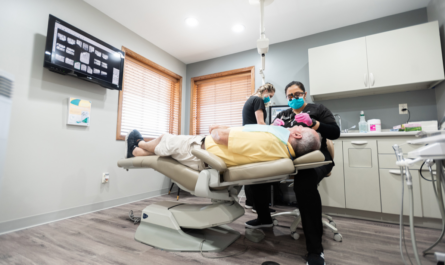By Andrew Smith, executive director, ADSO
In the wake of the COVID-19 pandemic and amid what many have been calling “The Great Resignation,” dental practices have not escaped the staffing woes facing so many businesses today. A recent report from the Health Policy Institute noted that more than one third of surveyed practices were recruiting for dental hygienists or assistants. The same report found that of dentists who reported not having a full appointment schedule, one in three pointed to a lack of adequate staff as a significant factor.
DSOs are not immune to staffing issues and are facing the growing difficulty of finding and retaining skilled talent to keep their practices operating at full capacity and serve their patients’ needs.
The dental workforce shortage is a complex problem. Current dental hygienists and assistants are leaving the profession. Faculty shortages in dental auxiliary training programs mean smaller class sizes and waiting periods for individuals who want to pursue auxiliary training. The inconsistency in scope of practice for assistants and hygienists from state to state and lack of license portability can lead to frustration.
The ADSO recognizes the workforce shortage as a critical issue for members and is committed to finding solutions. We are pursuing policy changes to address inconsistencies in training and certification regulations, seeking license portability for dental professionals, exploring public-private partnerships to help expand training programs and increase DA and DH program faculty, and looking for ways to elevate the entire dental team – emphasizing the importance of their roles in improving overall health through oral health. We are establishing a broad-based taskforce to identify real solutions to this complex issue.
Strategies for dental leaders
DSOs are taking deliberate steps to attract, win, and retain top talent. “Unsurprisingly, one of the best ways to recruit and retain quality staff is by offering competitive compensation and benefits packages” said Emmet Scott, ADSO president. “DSO leaders are continuously reassessing their workplace environment, ensuring that it offers the support, community, flexibility and professional development team members expect and need.”
No one-size-fits-all solution
It is important to acknowledge there is no one-size-fits-all solution to the current skills shortage. Each DSO needs to assess its specific needs and determine the best course forward for their organization. Staffing shortages will remain a significant challenge, but the ADSO and its members are well-positioned to find real solutions.





